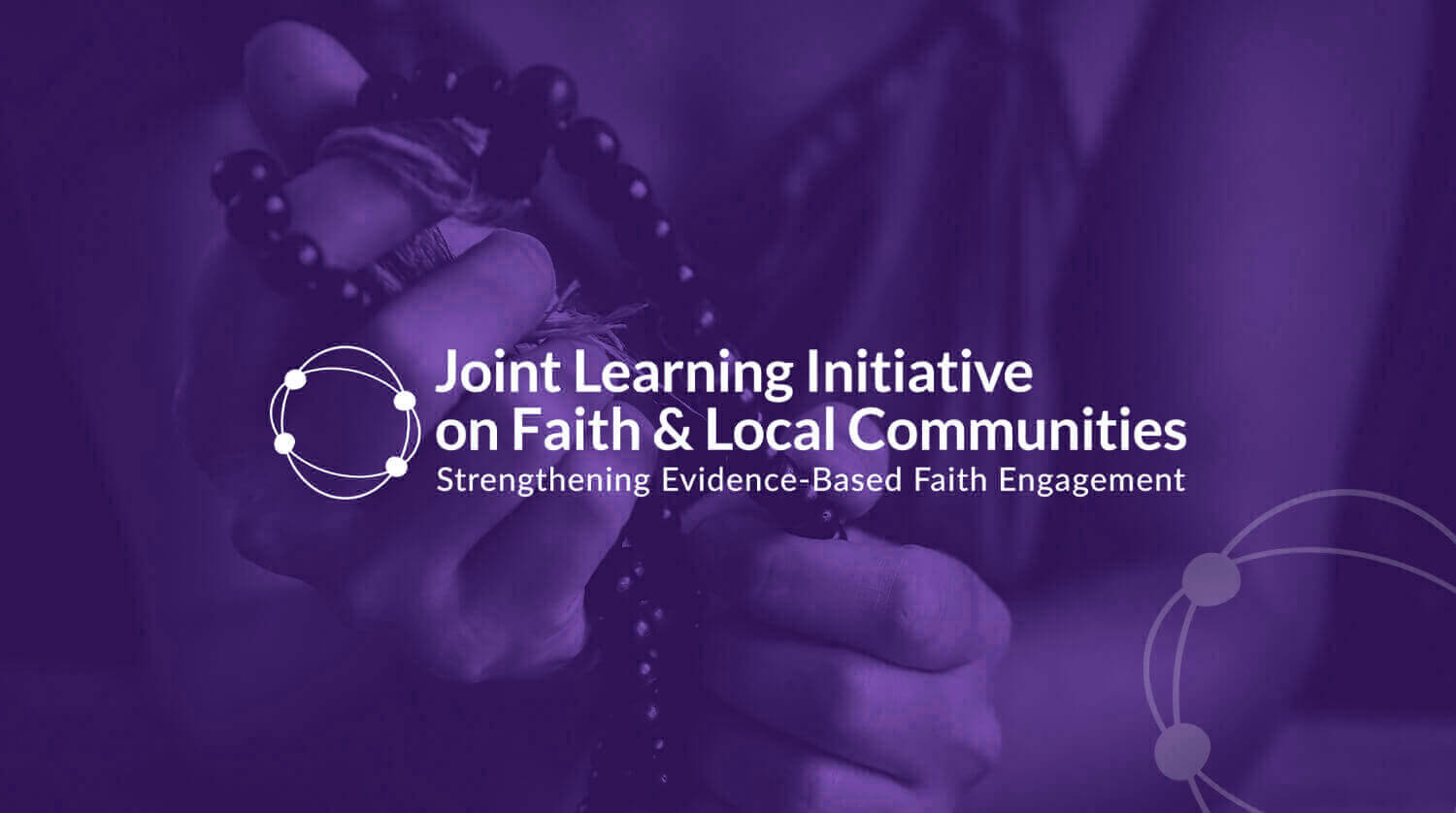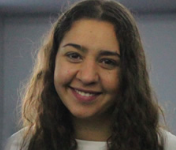CADENA is a Jewish non-profit originally based in Mexico. Benjamin Laniado, President and Founder of Cadena is on the Board of Directors for the Joint Learning Initiative on Faith & Local Communities (JLI). Cadena works to reduce the impact of natural disasters in vulnerable communities. The organization has been so successful, that it is expanding to more than seven countries.
By Andrea Arzaba
Tania Charabati from Mexico City serves as the Director of Cadena. In the following interview, Tania shares the challenges and successes of working for a faith based organization in one of the busiest, biggest and most culturally diverse metropolises in Latin America.
How did you become involved with the organization?
Tania: It was all luck or destiny. After I graduated from college, my family in Mexico City received a woman from Israel, who was going to volunteer the in southern Mexican state of Oaxaca, where Cadena has a project. After graduating, I had some free time, and I decided to volunteer with her as well. That trip changed my life. I was expecting to stay only three months. Right when I finished, they offered me employment and I decided to take it. When I started working there, there were only four people. Today we have twelve and we are growing.
How did CADENA start? What is Cadena’s current mission?
Tania: We are a Jewish organization. Cadena was born 10 years ago, as a result of the hurricane Stan, which affected the state of Chiapas. Five friends from Mexico City wanted to not only send food via the Red Cross, but they wanted to go themselves, and give the food and products to the people that needed them the most. They decided to take the risk, and go to Chiapas. When they arrived, they saw that the most needed people did not always get what they needed. And these friends were able to distribute what we send from hand to hand. Still today, that is our driving force- to work with the most vulnerable communities without intermediaries.
Cadena currently works with three areas: disaster prevention, education and resilience. With disaster prevention, we react effectively when there are disasters. We have a team of volunteers that go all around Mexico, and the world, to make an assessment of what happened during the disaster. At our office in Mexico City, we gather all of the products that might be needed, and volunteers take them to the disaster zone directly. In the area of education, we work with various projects that include summer camps for elementary school children, high school volunteer committees, and natural disasters and innovation contests. Finally, with our resilience pillar, we have a sustainable house in Oaxaca, where volunteers from all around the world come to help the community become more resilient.
How has the Jewish faith shaped the organization’s path?
We work under the Jewish principle called Tikún olam, which literally means “to repair the world”. We know that we came to make the world a better place, and to extend our hand to those who need it the most. Working with our faith makes me think that our work is purer in a sense. Also, we find it easy to share similar values, and to ally with organizations that have different faiths. For example, we often work with Operación Bendición (Blessing Operation), a Christian organization. When we work with other religions, is easy to find common goals. We have also worked with Anahuac University, a Catholic institution. We received an award from them. We become stronger when we work with other faiths. We love to cooperate.
I would like to add that the Jewish community supports us, and we really value that and we would like to put the name of the community in a good place.
What makes CADENA different from other organizations?
Tania: Cadena is unique because it is very efficient. We do not have bureaucracy and we are very positive. We Another aspect that makes us different is that we are a transparent organization, we do not have any hidden agenda, what moves us is to help our country and our world. Bigger organizations might lose our community sense, and we always have it with us. Also, our volunteers make us unique because they are very brave. They are our champions. Finally, we do not only bring food or certain products. We always give extra support. We bring psychologists, and other professionals with us. We also bring smiles and warm hearts. And we always try to help to reactivate the economy in the communities that have been affected by the natural disasters we work with.
What is Cadena’s biggest challenge today?
Tania: We are expanding on an international level. We have an office in Guatemala, and various in the USA. We are about to open a couple of offices in Panama, Chile, Argentina, and Israel. We have always been a small organization, very empirical and community based. We work here in the office and we always reach our goals and commitments. As Cadena grows, we would not want it to be less community based. We want to avoid being bureaucratic. We have to be careful with that.
What is Cadena’s biggest success?
Tania: It is difficult to choose only one. Everything makes me feel very proud. If I have to choose, then I would say that it is our rescue team- they went to Nepal and they saved one life. They went to Ecuador, and helped many people as well. I believe that all of the training, travelling, resources, time, volunteers, and energy spent, is worthwhile once you are able to help at least one person. When you save one life, you feel very satisfied.
What was Cadena’s experience at the World Humanitarian Summit in Istanbul?
Tania: This was very inspiring. Before attending the summit, we organized an ecumenical event here in Mexico. We invited representatives from 16 religions, and we had a dialogue of what actions to take to ally with humanitarian aid and emergency issues. In Turkey, my colleague Benjamin presented the outcomes and recommendations that came out from that dialogue. We were very proud of Benjamin, and of the organization, to represent the Jewish community in the WHS. Benjamin learned a lot of things at the conference and he shared them with us. We also got very useful contacts that we will be working with now that we become more international.
*** The interview was edited for length purposes.
Cadena’s JLI profile: https://jliflc.com/organizations/cadena/







